|
On Monday, we led our newsletter with analysis of a tragic mass stabbing event in Sydney. The deadly Westfield Bondi Junction attack was shocking and deeply saddening. Many are still reeling and will be for some time.
Now it’s Wednesday, and we’re leading with another piece on a second, separate stabbing event in Sydney. The incident at the Christ The Good Shepherd Church left two men injured and a great many more terrified as it played out on the live stream of mass.
With two such awful events so close together, comparisons were inevitable. But one key difference stuck out in yesterday’s coverage: the church attack was quickly pronounced a terrorist act.
Of the six victims in the Westfield attack, five were women. Women also comprise the majority of the injured. The New South Wales Police Commissioner said it was “obvious” the offender was targeting women.
So why, then, is that not also an act of terrorism?
As Greg Barton explains in his piece, whether something is deemed an act of terror doesn’t reflect its significance.
“Calling something a terrorist act doesn’t make it more or less serious than anything else, rather the categorisation is to provide conceptual clarity for the sake of the ensuing investigation.
"Events at Westfield Bondi Junction and the Assyrian Christ The Good Shepherd Church both seem awful, but while they share some similarities, they’re different sorts of crimes with different kinds of drivers and enablers. As police investigations continue, we’ll come to better understand the nature of both.”
And as Sydney-siders grapple with a second knife attack this week, some children will have big questions about what has happened. And they may be feeling scared and anxious. Child clinical psychologist Elizabeth Westrupp and her colleague Tomer Berkowitz write today about how to help your child feel safe.
Often parents can dismiss scary things in a bid to try to make a problem go away. But talking about these kinds of things can help children process them: “If your child is upset or anxious about what has happened, it’s important to notice, listen to and acknowledge their emotions. You can also empathise with your child – what has happened is awful and scary. Their response is perfectly natural.”
|

|
Erin Cooper-Douglas
Deputy Politics + Society Editor
|
|
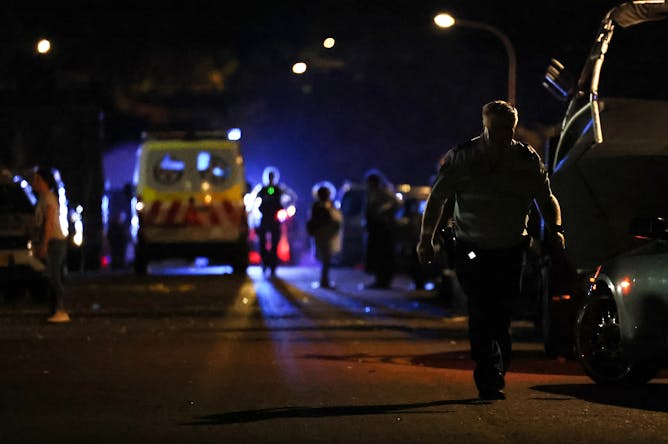
Greg Barton, Deakin University
Sydney has seen two stabbing incidents within days of each other. Grim comparisons are inevitable, but what makes them different?
|
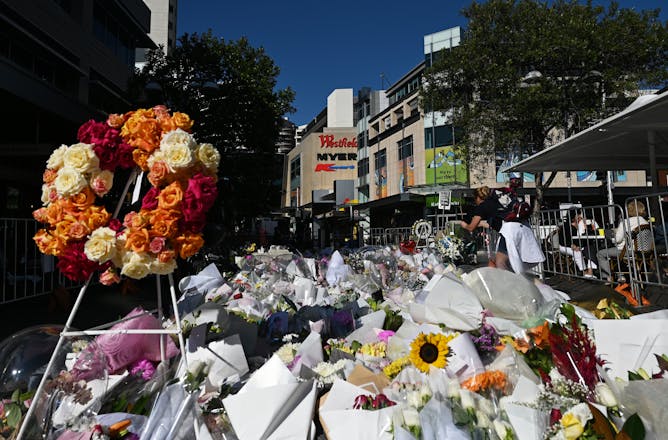
Elizabeth Westrupp, Deakin University; Tomer Berkowitz, Deakin University
In the space of three days, there have been two devastating knife attacks. Your child may have seen these on the news or social media. Or they might be hearing about it from friends.
|
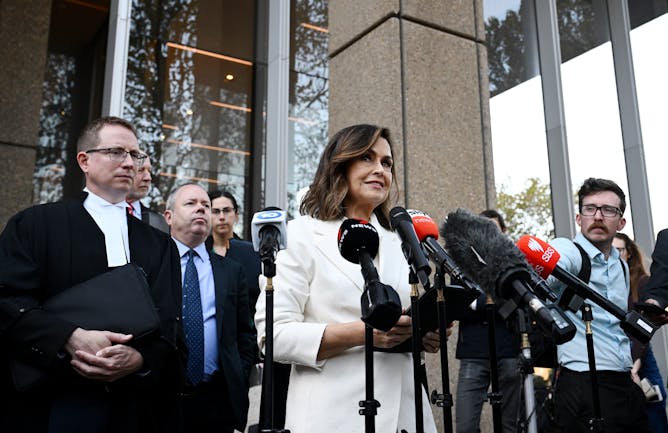
Denis Muller, The University of Melbourne
The judge in the high-profile defamation case described the saga as an “omnishambles” - and the media are included in that.
|
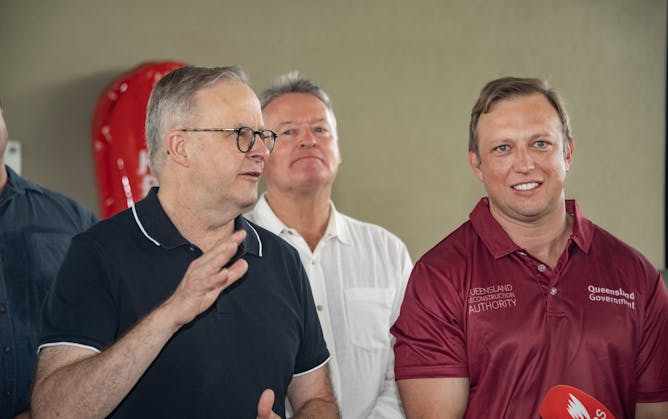
Michelle Grattan, University of Canberra
Two major critical minerals projects in Queensland and South Australia will receive $400 million in federal government loans to to deliver Australia’s first high-purity alumina processing facility.
|
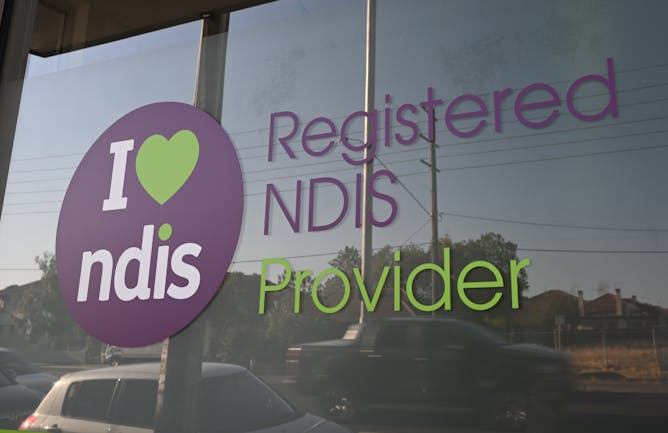
Sam Bennett, Grattan Institute; Hannah Orban, Grattan Institute
Many people in the disability community are distressed by the plan to register all NDIS providers. There could be a more nuanced approach that preserves their wishes.
|
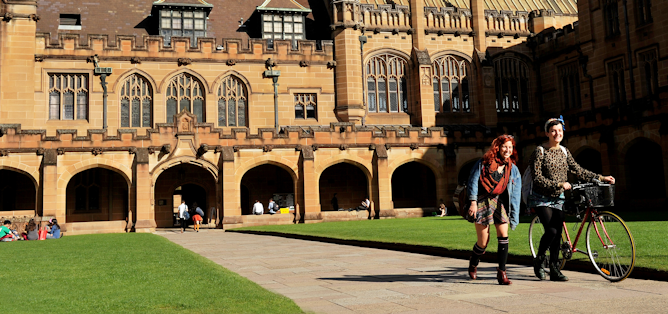
Peter Martin, Crawford School of Public Policy, Australian National University
A few simple changes to Australia’s system of student loans would smooth increases in the amounts owing and make it easier to get home loans.
|
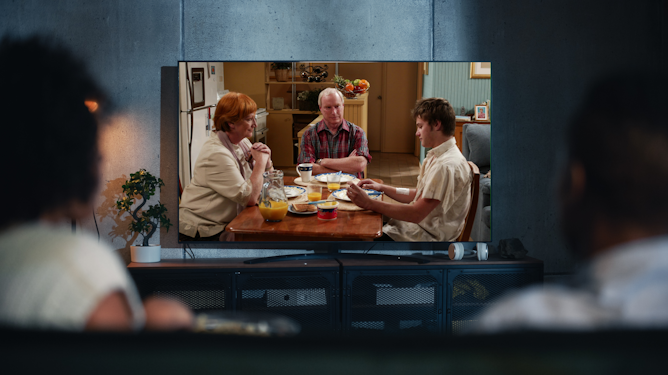
Alexa Scarlata, RMIT University; Ashleigh Dharmawardhana, RMIT University
On ‘FAST TV’ – free ad-supported streaming TV – you can watch Border Security non-stop, Mythbusters on a loop, or hours and hours of Baywatch.
|
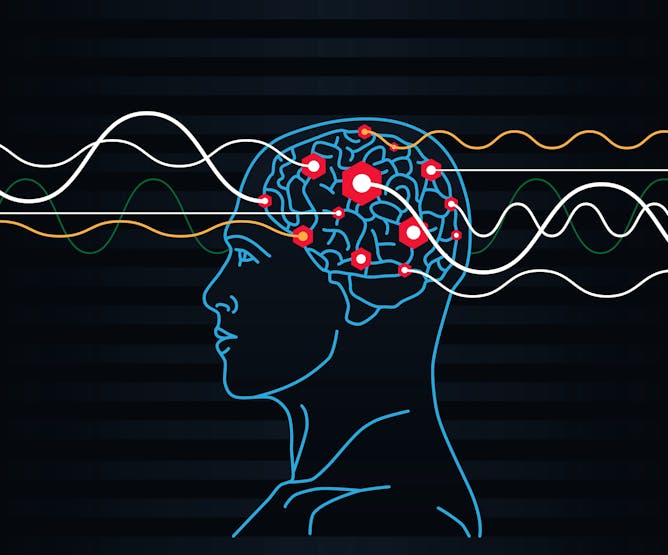
Sam Baron, The University of Melbourne; Jenny Judge, The University of Melbourne
Brain scanners and AI can turn brainwaves into streams of text – but language only captures a tiny fraction of our mental experience.
|
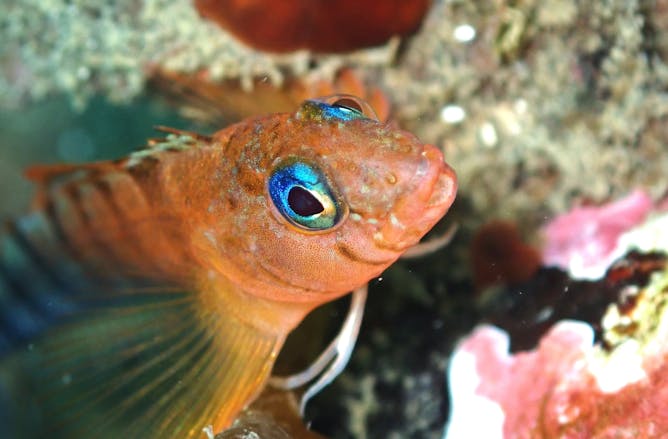
Kathleen Laura Sterup, Te Herenga Waka — Victoria University of Wellington; Abigail M Smith, University of Otago
The common triplefin is helping marine scientists understand the negative effects of ‘skyglow’ on coastal fish, which are already more exposed to microplastics, chemicals and noise pollution.
|
Politics + Society
|
-
Marco de Jong, Auckland University of Technology; Robert G. Patman, University of Otago
Concern is rising that an in-principle decision has been made about New Zealand joining AUKUS pillar two, without public understanding or political mandate.
-
Fiona Giles, La Trobe University; Kirsty Forsdike, La Trobe University
Luis Rubiales’ non-consensual kiss of Spanish soccer star Jenni Hermoso is far from an isolated incident – new research shows gender-based violence is still highly prevalent in sport.
-
Lucy Morieson, RMIT University; Alexandra Wake, RMIT University
With China increasingly seeking to influence Solomon Islands’ media, Australian news outlets must renew their commitment – and funding – to cover the Pacific.
|
|
Health + Medicine
|
-
Coral Gartner, The University of Queensland; Kathryn Steadman, The University of Queensland; Lisa Nissen, The University of Queensland
Allowing pharmacists to dispense nicotine vapes without a prescription would ensure people who are using them to quit smoking could access them legally, while preventing inappropriate sales to youth.
-
Theresa Larkin, University of Wollongong; Susan J. Thomas, University of Wollongong
We can’t avoid stress altogether. But there are healthy ways to deal with it and move on.
|
|
Environment + Energy
|
-
Adam James Loch, University of Adelaide; David Adamson, Royal Agricultural University; Mark Giancaspro, University of Adelaide; Michael Croft, University of Adelaide
Inconsistent laws and penalties for water theft in the Murray-Darling Basin make compliance and enforcement especially challenging. But it doesn’t have to be this way.
-
Olaf Meynecke, Griffith University
Young sharks are gathering at a popular beach. Here’s why we should skip our fear response and go for wonder – and protection
-
Margaret Stanley, University of Auckland, Waipapa Taumata Rau
With submissions about to close on the government’s proposed fast-track consenting legislation, its possible impact on New Zealand’s diminished and delicate ecosystems demands proper scrutiny.
|
|
Arts + Culture
|
-
Keagan Brewer, Macquarie University
This late-medieval document is written in encoded text that has yet to be cracked. But its numerous illustrations provide clues about its content.
|
|
Books + Ideas
|
-
John Woinarski, Charles Darwin University
A new book paints intricate portraits of plant and animal species, showing how they are woven into their ecological setting and describing how that weave is unravelling.
|
|
| |
|
|
|
James Cook Univeristy
Cairns QLD, Australia
•
Contract
|

|
|
The Conversation AU
Melbourne VIC, Australia
•
Full Time
|

|
|
University of Wollongong
Wollongong NSW, Australia
•
Full Time
|

|
|
|
|
| |
| |
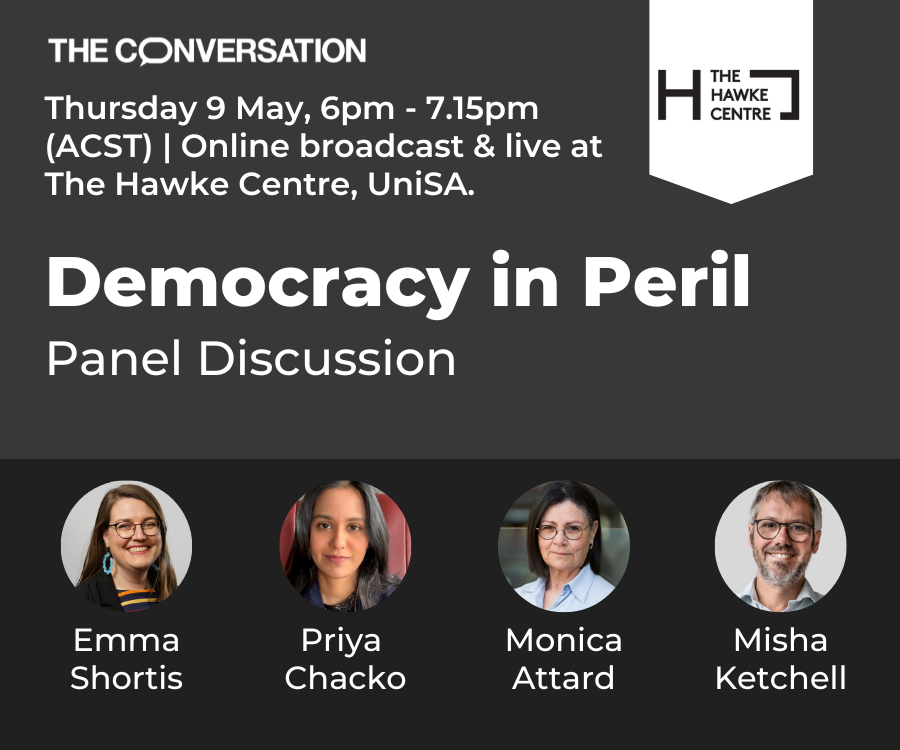
|
| |
| |
| |
Featured Events, Courses & Podcasts
|
View all
|
|
|
|
| |
| |
| |
| |
| |
|
|